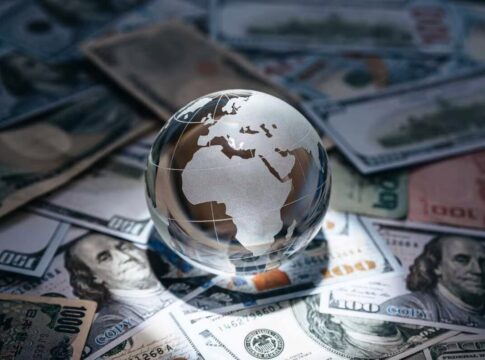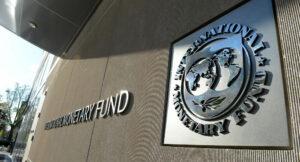The International Monetary Fund (IMF) recently unveiled its latest World Economic Outlook report, projecting a steady global growth rate of 3.3% for this year and the next. As the world navigates the aftermath of unprecedented disruptions, including the pandemic and geopolitical upheavals, the IMF’s outlook suggests a cautious optimism with underlying challenges that could impact this trajectory.
IMF Chief Economist Pierre-Olivier Gourinchas emphasized, “We are witnessing the end of a significant economic cycle marked by volatility and the beginning of a new phase. Inflation is gradually aligning with central bank targets, projected at 4.2% this year and 3.5% next year. This marks a significant shift back from the surges that plagued the global economy over the past few years.”
The report highlights varying economic landscapes across the globe. The United States is experiencing robust domestic demand, outpacing expectations, while Europe contends with sluggish growth and persistent energy challenges. Meanwhile, emerging markets, with China leading a modest recovery, demonstrate resilience amid these shifts.
Gourinchas warned of potential risks, noting, “Europe could see a sharper economic slowdown due to energy costs and public debt, while China’s recovery might stall without adequate policy support. The U.S. faces mixed signals from fiscal and trade policy changes, potentially affecting output dynamics.”
To navigate these uncertainties, the IMF outlines several key recommendations for policymakers. Agile monetary policy is crucial to managing inflation risks without unsettling market expectations. Priority should also be placed on stabilizing fiscal policies, with credible consolidation efforts where necessary. Structural reforms aimed at innovation and competition are vital to support growth during adjustments.
For emerging markets, Gourinchas advises, “Flexible exchange rates and targeted fiscal and monetary responses are essential to navigate current and future challenges.”
In a call for unity, the IMF underscores the importance of international cooperation in trade policy to fortify a resilient global economy. “Stronger multilateral cooperation is crucial,” Gourinchas stated, advocating for collaborative efforts to bolster economic stability and growth worldwide.
Supplementing the report, economic experts like Dr. Jane Smith from the Centre for Global Economic Policy, highlighted the importance of strategic policy implementations, stating, “Countries need tailored solutions that consider their unique economic environments. The IMF’s recommendations are a solid foundation, but local adaptations will be key.”
Dr. Ahmed Khan, a leading economist at the Middle East Economic Forum, added, “The Middle East, with its strategic positioning and resources, can play a pivotal role in stabilizing energy supplies. However, regional cooperation and conflict resolution remain critical to fully leverage these advantages.”
As the world steps into a new economic cycle, the IMF’s report serves as a guiding beacon for policymakers to navigate uncertainties and leverage opportunities for a stable and prosperous global future. The road ahead requires vigilant monitoring of economic indicators and adaptive strategies to foster a resilient and thriving global economy.




